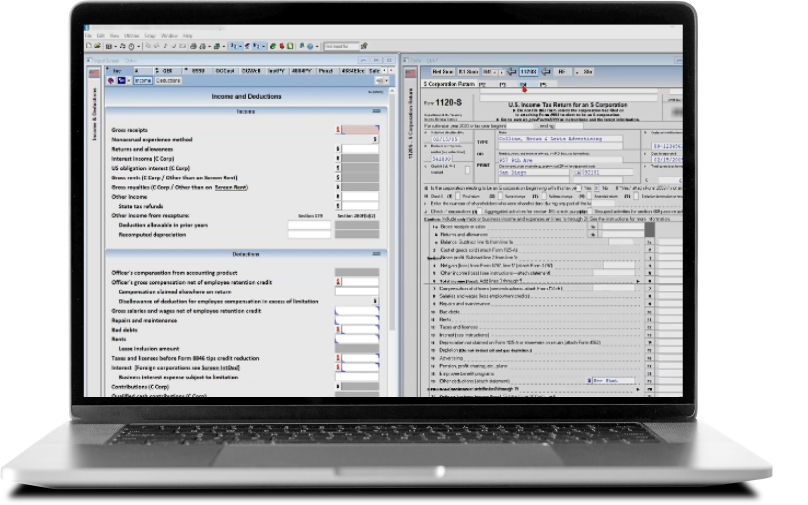Members of Congress Blast Biden on March-In Proposal and Pandemic Accord
“If such a policy had been in place ahead of the COVID-19 pandemic, it could have prevented innovations critical to ending the global public health emergency, such as mRNA vaccines or Paxlovid.” – Senators’ letter on WHO Pandemic Accord language
A bipartisan group of 28 members of congress, including Senate IP Subcommittee Chair Chris Coons (D-DE), Ranking Member Thom Tillis (R-NC) and House IP Subcommittee Chair Darrell Issa (R-CA), sent a letter yesterday to President Biden urging the administration to reconsider its December proposal to allow agencies to consider pricing in deciding whether and when to “march in” on patent rights. Also yesterday, four bipartisan senators wrote to White House National Security Advisor Jake Sullivan in opposition to the negotiating text of the World Health Organization (WHO) Pandemic Agreement, warning that it “would undercut—if not destroy—the very aspects of our innovation ecosystem that just recently produced such positive results.”
Broad Criticism of March-In Proposal Grows
The National Institute of Standards & Technology (NIST) and the Department of Commerce published a Federal Register Notice in December seeking comments on the proposed framework for deciding whether to exercise march-in rights under the Bayh-Dole Act that would significantly broaden the criteria for compulsory licensing of patented technology developed with federal funding. Many have been vocally critical of the proposal, with groups like the U.S. Chamber of Commerce; the Bayh-Dole Coalition; C4IP; former commerce and U.S. Patent and Trademark Office (USPTO) directors; the Association of University Technology Managers (AUTM); the Association of American Universities, the Association of Public and Land-grant Universities and the Association of American Medical Colleges; and a former Federal Trade Commission (FTC) general counsel, among others, with some warning that the proposed framework is legally unsound while most agree it would create uncertainty that would greatly undermine innovation.
While Bayh-Dole presently contemplates march-in rights, the law strictly limits the situations in which they can be exercised and does not make any reference to pricing as a criterion for marching in. But under the proposed framework, an agency may consider “[a]t what price and on what terms has the product utilizing the subject invention been sold or offered for sale in the U.S.” and whether “the contractor or licensee [has] made the product available only to a narrow set of consumers or customers because of high pricing or other extenuating factors”.
The letter sent yesterday argues that the proposal will have “serious unintended consequences… which would apply to all types of technologies and products, not just pharmaceuticals” and notes that “drug price changes prompted by successful march-in petitions will be negligible at best.” The letter adds:
“Under the proposed framework, entrepreneurial startups and small companies across industries—from green technology and precision agriculture to advanced computing and semiconductors—would be subject to march-in petitions challenging their pricing decisions by rival businesses and even our foreign competitors and adversaries, who could use this tool to cast a cloud over the companies that drive our economy.”
Pandemic Accord Language Would Revive Broad IP Waiver
Tillis and Coons were also joined by Senators Mazie Hirono (D-HI) and James Lankford (R-OK) in a letter to the U.S. National Security Advisor, copying U.S. Department of Health and Human Services Secretary Xavier Becerra, cautioning that the current draft of the WHO Agreement on Pandemic Preparedness and Response would essentially sanction a broad waiver of IP rights that have been proven unnecessary. The agreement’s negotiating text would call for parties to agree “within the framework of relevant institutions,” to “time-bound waivers of intellectual property rights to accelerate or scale up the manufacturing of pandemic-related products to the extent necessary to increase the availability and adequacy of affordable pandemic related products.” It also calls for encouraging patent owners to waive royalty payments by developing countries and urging manufacturers to disclose their trade secrets.
“The proposal mandates that companies that receive public funding will have to essentially give away their IP if they develop a successful treatment, whether through compulsory licensing, non-exclusive licensing, or by foregoing royalties,” says the senators’ the letter. “The proposed language does not limit these IP waivers to vaccines or medical treatments; instead, the waivers would apply to all ‘pandemic-related products’—a term that broadly includes any ‘products that are needed for pandemic prevention, preparedness and response.’”
The letter points to a report conducted by the U.S. International Trade Commission (ITC) last year analyzing market dynamics surrounding the question of whether to extend the waiver of IP rights for COVID-19 technologies under the Agreement on Trade-Related Aspects of Intellectual Property Rights (TRIPS) to diagnostics and therapeutics. A deal was reached on the waiver for COVID vaccine tech in June 2022, but the United States postponed its decision on extending the waiver to diagnostics and therapeutics pending further research, which it directed the ITC to carry out.
The ITC report released in October 2023 stopped short of making any recommendations, but ultimately did not find any definitive evidence that IP rights present a barrier to access in the context of COVID diagnostics and therapeutics. It also confirmed that, as of September 2023, no one had made use of the waiver for vaccine technologies.
A poll conducted by the Bayh-Dole Coalition that was released last month found that seven in ten Americans think existing standards for IP protections at the World Trade Organization should be preserved, among other findings.
The senators’ letter explains that the wording of the pandemic agreement text would have implications for companies that don’t receive public funding as well, and will likely result in companies relying more on trade secrets, which would be counterproductive:
“Alarmingly, such a provision may lead companies to refrain altogether from developing new pandemic-related products and instead choose to invest in other areas that do not involve the same legal risks. If such a policy had been in place ahead of the COVID-19 pandemic, it could have prevented innovations critical to ending the global public health emergency, such as mRNA vaccines or Paxlovid…. Reliance on trade secrets means other scientists would not have access to new information, impeding their own scientific progress. Research would become siloed, slowing down a response to a new pandemic.”
The letter ultimately urged Sullivan to seek “significantly more public feedback” before supporting the agreement.
The WTO’s 13th Ministerial Conference is also set to take place next week, and the decision on extending the TRIPS waiver to diagnostics and therapeutics is on the agenda. However, many are skeptical that any agreement will be reached.
Image Source: Deposit Photos
Author: nbvf89
Image ID: 11482434
Eileen McDermott
Eileen McDermott is the Editor-in-Chief of IPWatchdog.com. Eileen is a veteran IP and legal journalist, and no stranger to the intellectual property world, having held editorial and managerial positions at […see more]






